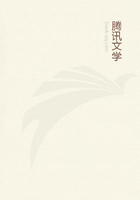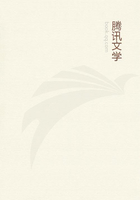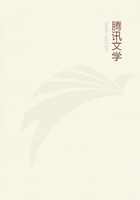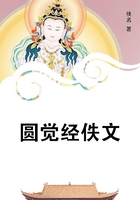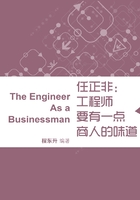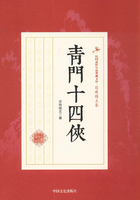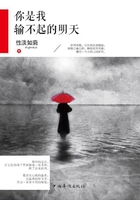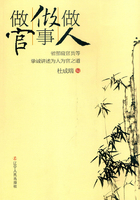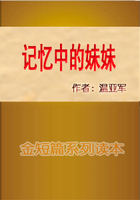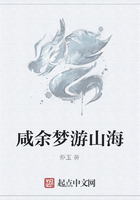but he may amplify and develop it enormously as he acts it out.His spontaneity is lost only for those systems of ideas which conflict with the suggested delusion, The latter is thus 'systematized'; the rest of consciousness is shutoff, excluded, dissociated from it.In extreme cases the rest of the mind would seem to be actually abolished and the hypnotic subject to be literally a changed personality, a being in one of those 'second' states which we studied in Chapter X.But the reign of the delusion is often not as absolute as this.If the thing suggested be too intimately repugnant, the subject may strenuously resist and get nervously excited in consequence, even to the point of having an hysterical attack.The conflicting ideas slumber in the background and merely permit those in the foreground to have their way until a real emergency arises; then they assert their rights.As M.Delboeuf says, the subject surrenders himself good-naturedly to the performance, stabs with the pasteboard dagger you give him because he knows what it is, and fires off the pistol because he knows it has no ball; but for a real murder he would not be your man.It is undoubtedly true that subjects are often well aware that they are acting a part.They know that what they do is absurd.They know that the hallucination which they see, describe, and act upon, is not really there.They may laugh at themselves; and they always recognize the abnormality of their state when asked about it, and call it 'sleep.' One often notices a sort of mocking smile upon them, as if they mere playing a comedy, and they may even say on 'coming to' that they were sham- ming all the while.These facts have misled ultra-skeptical people so far as to make them doubt the genuineness of any hypnotic phenomena at all.But, save the consciousness of 'sleep,' they do not occur in the deeper conditions; and when they do occur they are only a natural consequence of the fact that the 'monoideism'
is incomplete.The background-thoughts still exist, and have the power of comment on the suggestions, but no power to inhibit their motor and associative effects.A similar condition is frequent enough in the waking state, when an impulse carries us away and our 'will' looks on wonderingly like an impotent spectator.These 'shammers' continue to sham in just the same way, every new time you hypnotize them, until at last they are forced to admit that if shamming there be, it is something very different from the free voluntary shamming of waking hours.
Real sensations may be abolished as well as false ones suggested.
Legs and breasts may be amputated, children born, teeth extracted, in short the most painful experiences undergone, with no other anæsthetic than the hypnotizer's assurance that no pain shall be felt.Similarly morbid pains may be annihilated, neuralgias, toothaches, rheumatisms cured.The sensation of hunger has thus been abolished, so that a patient took no nourishment for fourteen days.The most interesting of these suggested anæsthesias are close limited to certain objects of perception.Thus a subject may be made blind to a certain per-son and to him alone, or deaf to certain words but to no others. In this case the anæsthesia (or negative hallucination , as it has been called) is apt to become systematized.Other things related to the person to whom one has been made blind may also be shut out of consciousness.What he says is not heard, his contact is not felt, objects which he takes from his pocket are not seen, etc.Objects which he screens are seen as if he were transparent.
Facts about him are forgotten, his name is not recognized when pronounced.
Of course there is great variety in the com- pleteness of this systematic extension of the suggested anæsthesia, but one may say that some tendency to it always exists.When one of the subjects' own limbs is made ansthetic, for example, memories as well as sensations of its movements often seem to depart.An interesting degree of the phenomenon is found in the case related by M.Binet of a subject to whom it was suggested that a certain M.C.was invisible.She still saw M.C., but saw him as a stranger, having lost the memory of his name and his existence.-- Nothing is easier than to make subjects forget their own name and condition in life.It is one of the suggestions which most promptly succeed, even with quite fresh ones.A systematized amnesia of certain periods of one's life may also be suggested, the subject placed, for instance, where he was a decade ago with the intervening years obliterated from his mind.
The mental condition which accompanies these systematized anæsthesias and amnesias is a very curious one.The anæsthesia is not a genuine sensorial one, for if you make a real red cross (say) on a sheet of white paper invisible to an hypnotic subject, and yet cause him to look fixedly at a dot on the paper on or near the cross, he will, on transferring his eye to a blank sheet, see a bluish-green after-image of the cross.This proves that it has impressed his sensibility.He has felt it, but not perceived it.He had actively ignored it, refused to recognize it, as it were.Another experiment proves that he must distinguish it first in order thus to ignore it.Make a stroke on paper or blackboard, and tell the subject it is not there, and he will see nothing but the clean paper or board.Next, he not looking, surround the original stroke with other strokes exactly like it, and ask him what he sees.He will point out one by one all the new strokes slid omit the original one every time, no matter how numerous the new strokes may be, or in what order they are arranged.
Similarly, if the original single stroke to which he is blind be doubled by a prism of sixteen degrees placed before one of his eyes (both being kept open), he will say that he now sees one stroke, and point in the direction in which the image seen through the prism lies.

